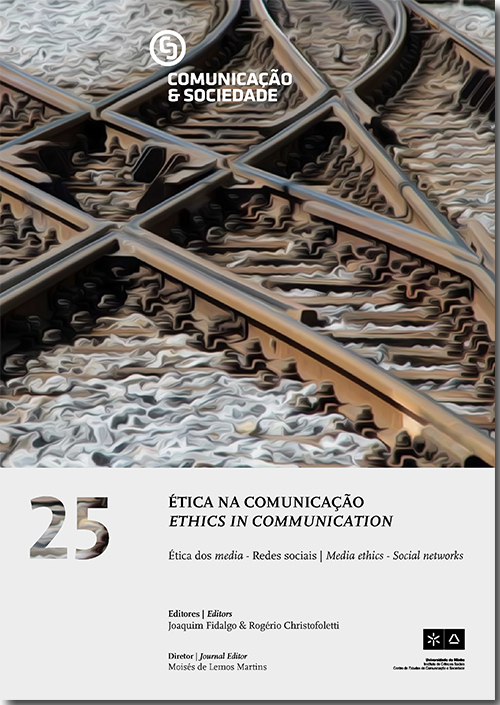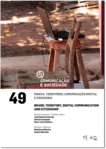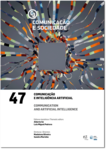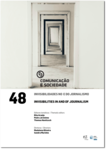Review of international media ethics
DOI:
https://doi.org/10.17231/comsoc.25(2014).1855Palavras-chave:
Media ethics, ethical theory, universal values, international, communicationResumo
An international orientation has been a primary goal of media ethics, especially since the MacBride Report (1980), as can be seen in cases, issues and codes of ethics that have been adopted in different countries. But work in ethical theory has also been increasingly committed to an international perspective, and three examples of it (besides the classical Habermas’ discourse ethics) are discussed in this essay: feminist ethics of care, African communal ethics, and Confucian media ethics. All these theories emphasize, in their specific ways, three major ethical principles – truth, human dignity, non-violence – that emerge from a common protonorm, a kind of first belief that can be found in all religions, philosophies, and cultures: the sacredness of life. Given the dilemmas and moral issues that the media face in today’s volatile world, a commitment with these universal values will give communication education and practice long-term vitality.
Downloads
Downloads
Publicado
Como Citar
Edição
Secção
Licença
Os autores são titulares dos direitos de autor, concedendo à revista o direito de primeira publicação. O trabalho é licenciado com uma Licença Creative Commons - Atribuição 4.0 Internacional.











